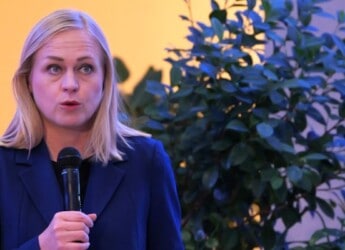|
|
Content Assessment: A New Data Privacy Framework? A European Commission and United States Joint Statement
Information - 87%
Insight - 85%
Relevance - 92%
Objectivity - 90%
Authority - 93%
89%
Good
A short percentage-based assessment of the qualitative benefit of the joint EU and US announcement on an agreement in principle on a new Trans-Atlantic data transfer framework.
Editor’s Note: ComplexDiscovery OÜ is a technology marketing firm providing strategic planning and tactical execution expertise in support of cyber, data, and legal discovery organizations. Focused primarily on supporting the ComplexDiscovery publication, the company has been registered as a private limited company in the European Union (EU) country of Estonia, one of the most digitally advanced countries in the world, since 2020. As an Estonian company operating in the EU, ComplexDiscovery OÜ regularly monitors and reports on EU and European Commission (EC) actions influencing the eDiscovery ecosystem, actions ranging from data protection and cybersecurity initiatives to the current crisis in Ukraine. The recent joint announcement from the EC and the United States on a new Trans-Atlantic Data Privacy Framework is one example of this coverage as it highlights challenges and commitments for trans-Atlantic data flows. This coverage may be useful for cybersecurity, information governance, and legal discovery professionals as they seek to protect citizen rights and enable trans-Atlantic commerce.
Press Announcement and Fact Sheet*
European Commission and United States Joint Statement on Trans-Atlantic Data Privacy Framework
European Commission
The European Commission and the United States announce that they have agreed in principle on a new Trans-Atlantic Data Privacy Framework, which will foster trans-Atlantic data flows and address the concerns raised by the Court of Justice of the European Union in the Schrems II decision of July 2020.
The new Framework marks an unprecedented commitment on the U.S. side to implement reforms that will strengthen the privacy and civil liberties protections applicable to U.S. signals intelligence activities. Under the Trans-Atlantic Data Privacy Framework, the United States is to put in place new safeguards to ensure that signals surveillance activities are necessary and proportionate in the pursuit of defined national security objectives, establish a two-level independent redress mechanism with binding authority to direct remedial measures, and enhance rigorous and layered oversight of signals intelligence activities to ensure compliance with limitations on surveillance activities.
The Trans-Atlantic Data Privacy Framework reflects more than a year of detailed negotiations between the U.S. and E.U. led by Secretary of Commerce Gina Raimondo and Commissioner for Justice Didier Reynders. It will provide a durable basis for trans-Atlantic data flows, which are critical to protecting citizens’ rights and enabling trans-Atlantic commerce in all sectors of the economy, including for small and medium enterprises. By advancing cross-border data flows, the new framework will promote an inclusive digital economy in which all people can participate and in which companies of all sizes from all of our countries can thrive.
The announcement is another demonstration of the strength of the U.S.-EU relationship, in that we continue to deepen our partnership as a community of democracies to ensure both security and respect for privacy and to enable economic opportunities for our companies and citizens. The new Framework will facilitate further U.S.-EU cooperation, including through the Trade and Technology Council and through multilateral fora, such as the Organisation for Economic Cooperation and Development, on digital policies.
The teams of the U.S. Government and the European Commission will now continue their cooperation with a view to translate this arrangement into legal documents that will need to be adopted on both sides to put in place this new Trans-Atlantic Data Privacy Framework. For that purpose, these U.S. commitments will be included in an Executive Order that will form the basis of the Commission’s assessment in its future adequacy decision.
Read the original announcement.
Fact Sheet: Trans Atlantic Data Privacy Framework (PDF)
Trans-Atlantic Data Privacy FrameworkAdditional Reading
- Data Embassies: Sovereignty, Security, and Continuity for Nation-States
- [Annual Update] International Cyber Law in Practice: Interactive Toolkit
Source: ComplexDiscovery



























